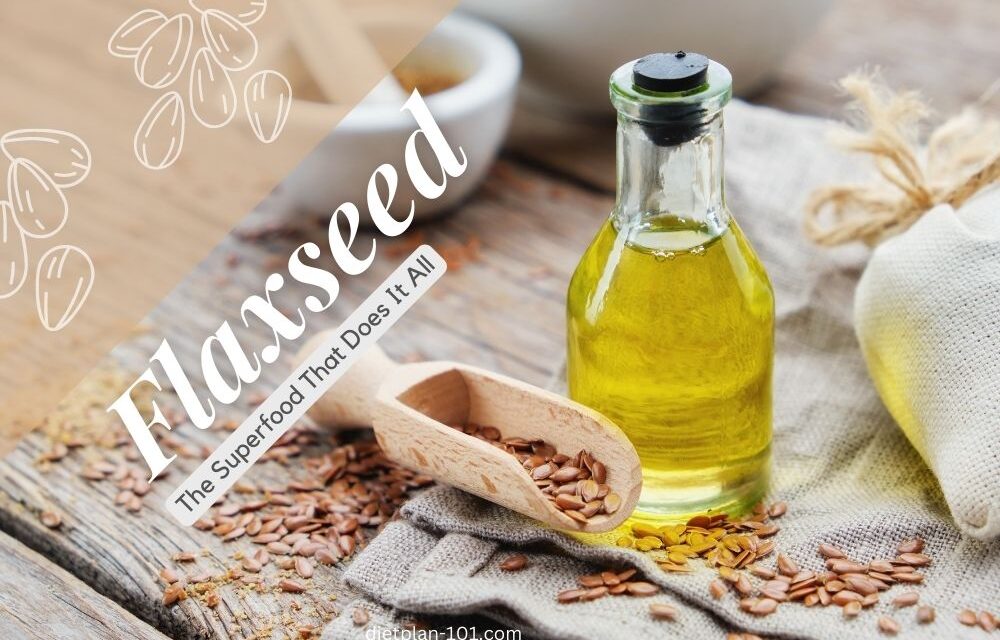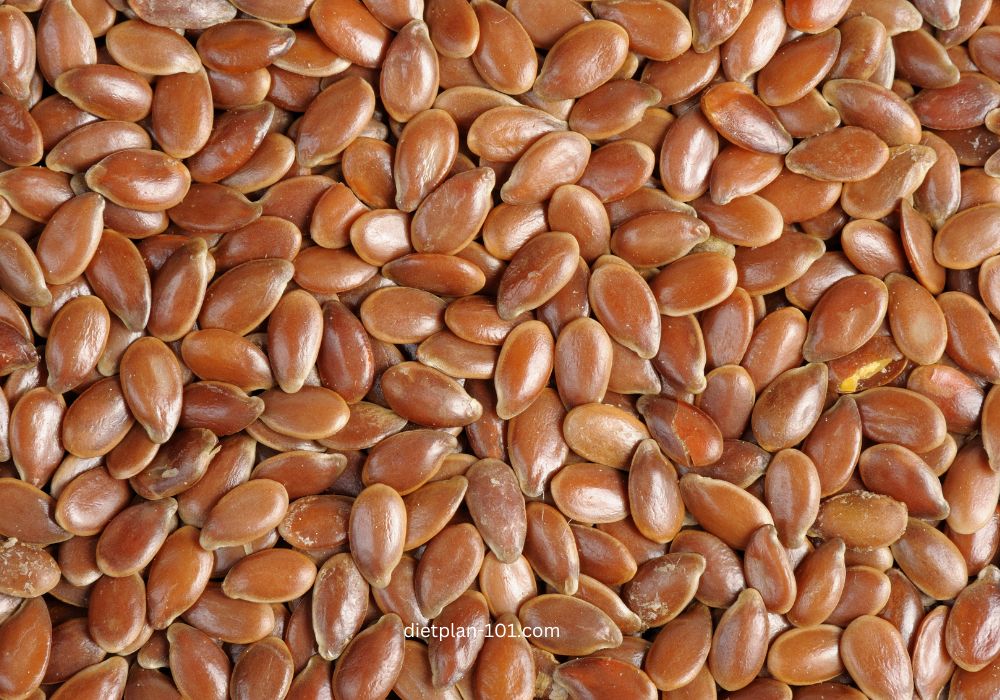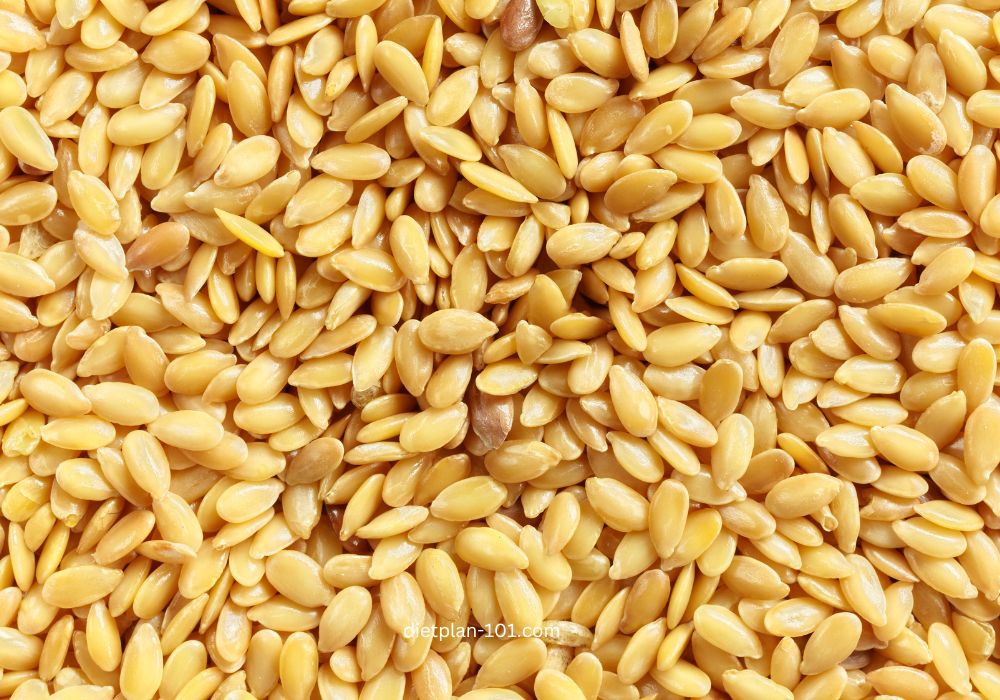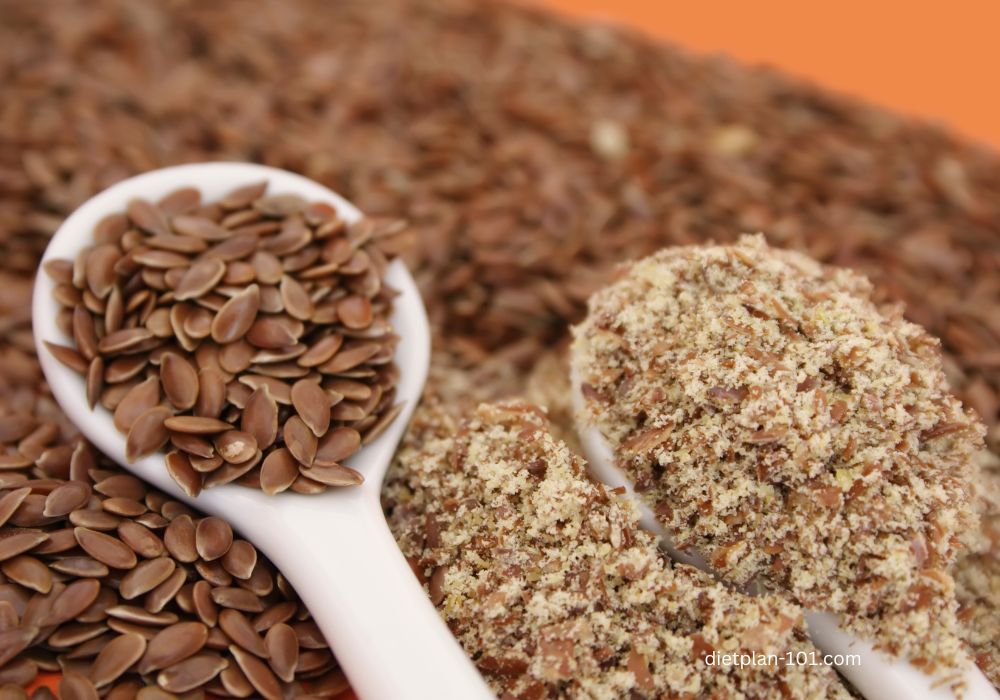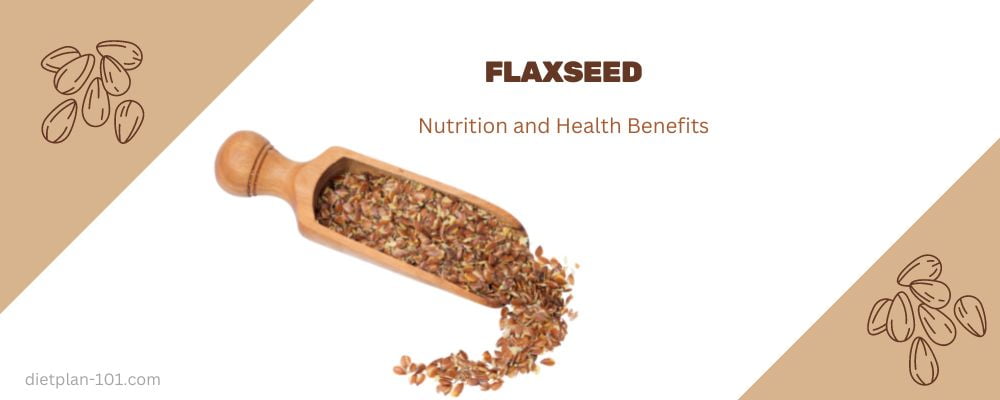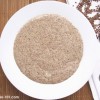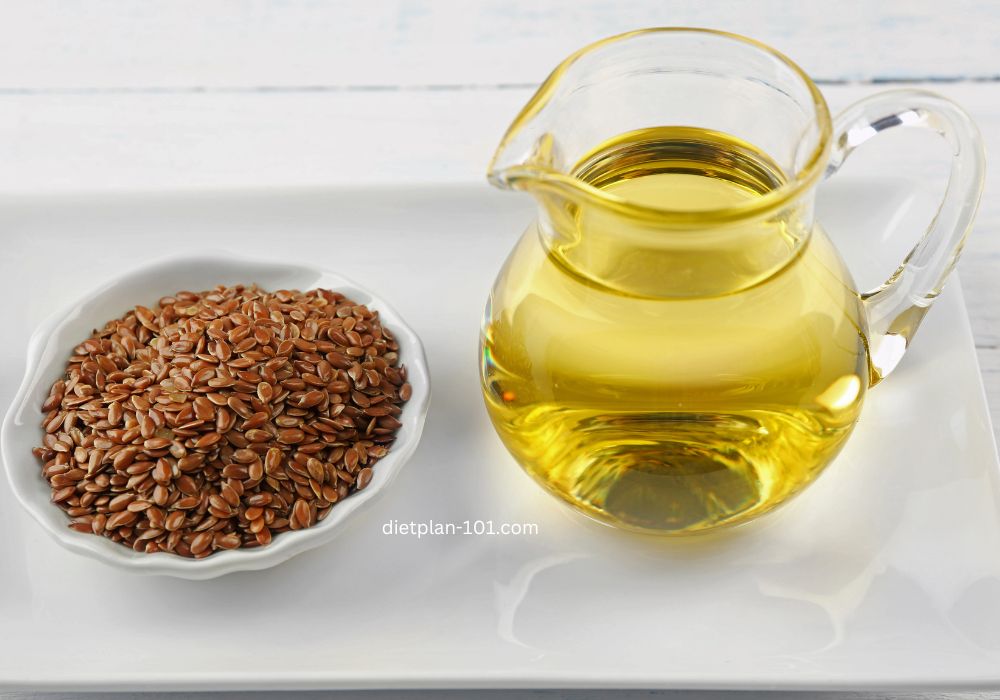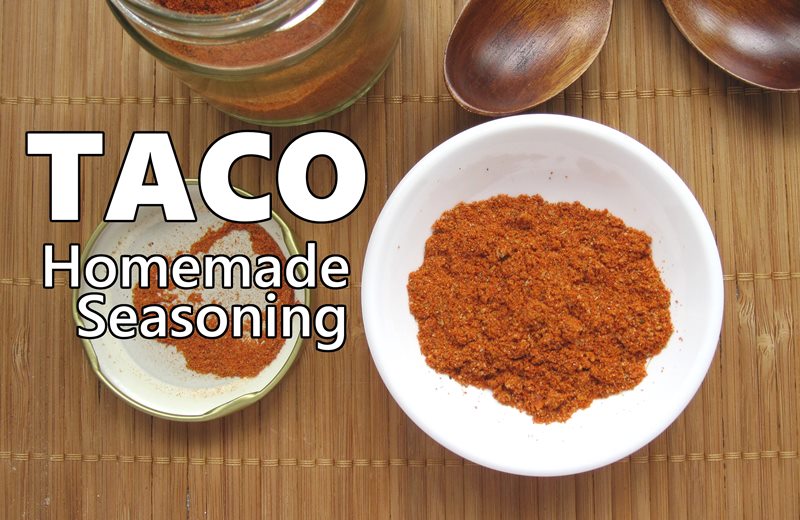Move over kale, there’s a new superfood in town and it’s tiny but mighty – flaxseed! This little seed has been gaining popularity in recent years, and it’s no wonder why. It’s packed with essential nutrients and health benefits that can do wonders for your body.
Did you know that flaxseed comes in different colors? Brown flaxseed is the most common type and can be found in grocery stores, while golden flaxseed is lighter in color and has a nuttier flavor.
But regardless of color, all types of flaxseed are loaded with nutrients and offer similar health benefits. In this post, we’ll dive into the amazing properties of both flaxseed and flaxseed oil and show you how to incorporate them into your diet for optimal health. So whether you’re a health nut or just curious, keep reading to discover the wonders of flaxseed!
Flaxseed has been cultivated for over 6,000 years and was a staple crop in ancient Egypt and China.
How to Choose and Store Flaxseed
Flaxseed is a great addition to your diet, but it’s important to choose the right kind. Look for flaxseeds that are brown or golden in color, with no signs of mold or rancidity. The seeds should be firm and free from cracks or holes.
If you buy them whole, store them in an airtight container in the refrigerator or freezer; otherwise, they’ll go rancid if left out at room temperature for too long.
Flaxseed is best ground just before use so that you can get all its nutritional benefits without having to worry about how long it’s been sitting around since being ground up last time–and this is especially true if you’re using whole seeds rather than pre-ground powder form (which tends not only taste better but also have higher levels of lignans).
Here are some tips to help you choose the best flaxseed:
- Choose whole flaxseed: Whole flaxseed is more nutritious than ground flaxseed because it retains all its nutrients and natural oils. So, don’t settle for the ground stuff, go for the whole if possible.
- Organic flaxseed is the way to go: Say goodbye to pesticides and harmful chemicals. Organic flaxseed is grown without pesticides or harmful chemicals, making it a healthier option.
- Check the expiration date: Flaxseed can become rancid over time, check the expiration date on the package before purchasing. You don’t want to be stuck with rancid flaxseed, do you?
- Consider the packaging: Flaxseed should be stored in an airtight container to prevent exposure to air, light, and moisture, which can cause it to spoil.
- Buy from a reputable brand: Don’t settle for just any flaxseed brand. Choose a brand that is known for its quality and commitment to producing high-quality flaxseed. You deserve the best!
By following these simple tips, you can ensure that you choose the best flaxseed for your health and well-being. Your body will thank you for it.
Nutritional Value of Flaxseed
Flaxseed is known for its high nutritional value. It contains a variety of nutrients, including:
- Fiber: Flaxseed is rich in dietary fiber, which is important for digestive health and weight management. One tablespoon of ground flaxseeds provides about 4 grams of fiber–more than half the recommended daily intake for women!
- Protein: Flaxseed also contains small amounts (2-3%) of complete protein that can help you stay full longer between meals. This makes it an excellent option if you’re looking to increase your intake without adding extra calories or fat from animal sources.
- Omega-3 Fatty Acids (ALA): ALA has been shown to reduce inflammation throughout the body by lowering levels of pro-inflammatory chemicals called cytokines. It may also help reduce cholesterol levels by lowering triglycerides while raising HDL (“good”) cholesterol levels.
Health Benefits of Flaxseed
Flaxseed is the ultimate superfood for maintaining a healthy lifestyle. Why, you ask? It’s jam-packed with essential nutrients such as omega-3 fatty acids, fiber, and lignans, which have been linked to improved heart health, digestion, and skin health.
But that’s not all. Flaxseed also contains a variety of vitamins that can benefit your body in numerous ways. Vitamin A, for instance, promotes good eye health and can help maintain vision as you age. And if you’re in need of a quick energy boost, vitamin B1 (Thiamine) and vitamin B2 (Riboflavin) can help convert carbohydrates and food into energy, respectively.
So, whether you’re looking to improve your overall health or just want to add some extra nutrients to your daily diet, flaxseed is the way to go. Trust us, your body will thank you for it.
Adding just two tablespoons of ground flaxseed to your diet each day can significantly reduce your risk of heart disease and lower your cholesterol levels.
Incorporating Flaxseed into Your Diet
Flaxseed is a versatile ingredient that can be easily incorporated into a variety of meals, drinks and snacks. Here are some tips and recipes for adding flaxseed to your diet:
- Sprinkle ground flaxseed on top of oatmeal, yogurt, or smoothie bowls for a nutty crunch.
- Use flaxseed as a binder in veggie burgers or meatballs instead of eggs.
- Add flaxseed to baked goods like muffins or bread for a boost of fiber and protein.
- Mix ground flaxseed into homemade salad dressings for added nutrition.
- Make a flaxseed “egg” by mixing 1 tablespoon of ground flaxseed with 3 tablespoons of water. Let it sit for a few minutes to thicken, then use it as a vegan egg substitute in baking.
Here are some recipe ideas to get you started:
Sweet recipes:
- Banana Flaxseed Smoothie: Blend 1 banana, 1 cup almond milk, 1 tablespoon ground flaxseed, and add a handful of ice, and blend until smooth.
- Flaxseed Energy Balls: Mix 1 cup rolled oats, 1 cup peanut butter, ¼ cup honey, and ¼ cup ground flaxseed. Roll into balls and chill until firm.
Related:
Savory recipes:
- Flaxseed-Crusted Chicken Tenders: Mix ½ cup ground flaxseed with 1 teaspoon garlic powder, 1 teaspoon paprika, and salt and pepper to taste. Coat chicken tenders in the mixture and bake at 400°F for 20-25 minutes.
- Flaxseed Hummus: Blend 1 can chickpeas, ¼ cup tahini, ¼ cup lemon juice, 2 cloves garlic, ¼ cup olive oil, and 2 tablespoons ground flaxseed until smooth.
Check out our blog for two amazing recipes that you won’t want to miss.
Flaxseed oil was used as a lamp oil in ancient times and was also used to make soap.
Using Flaxseed Oil
Flaxseed oil is a versatile and nutritious addition to any diet. With its high concentration of omega-3 fatty acids, it can help reduce inflammation and improve heart health. But how can you use flaxseed oil in your daily routine?
- One option is to take it as a supplement. Capsules are readily available, or you can add a tablespoon to your smoothies or salad dressings. The subtle nutty flavor makes it a tasty addition to many recipes.
- Another way to use flaxseed oil is as a cooking oil. However, because it has a low smoke point, it’s best used for low-heat cooking or as a finishing oil. Try drizzling it over roasted vegetables or mixing it with vinegar to make a delicious salad dressing.
It’s important to note that flaxseed oil differs slightly from whole flaxseed in terms of health benefits. While both are high in omega-3s, flaxseed oil is a more concentrated source. However, it lacks the fiber and lignans found in whole flaxseed, which is important for digestive and hormonal health.
When purchasing flaxseed oil, be sure to choose a reputable brand and store it in the refrigerator. It can go rancid quickly, so use it within a few months of opening.
Disclaimer: As with any dietary change, it’s always a good idea to consult with your healthcare provider before adding flaxseed oil to your routine.
Lose Weight Naturally with Flaxseed: Here’s How
Looking to lose weight but tired of fad diets that don’t work? Add some flaxseed to your diet! This tiny but mighty superfood is packed with fiber, protein, and healthy fats. Not only does it keep you feeling full and satisfied, but it also promotes healthy digestion.
So how can you add flaxseed to your weight loss journey? Here are some easy tips:
- sprinkle some ground flaxseed over your morning oatmeal or yogurt for a boost of nutrition.
- Add flaxseed to your smoothies for an extra protein punch.
- Use flaxseed oil as a salad dressing or drizzle it over roasted veggies for a healthy fat source.
- Bake some homemade flaxseed crackers or muffins a delicious and nutritious snack.
- Make a flaxseed “egg” by combining ground flaxseed with water and use it as a vegan in baking recipes.
These simple tips are all it takes to get you on your way to a healthier and happier you. So why not add some flaxseed to your diet today and watch the pounds disappear naturally?
Flaxseed is one of the oldest fiber crops in the world and is used to make linen, paper, and even banknotes.
The Bottom Line
In conclusion, flaxseed truly is a superfood that does it all. From its impressive nutritional profile to its versatility in the kitchen, it’s no wonder why it’s a favorite among health enthusiasts. Whether you’re looking to improve digestion, boost heart health, or aid in weight loss, adding flaxseed to your diet is a simple and effective way to support your overall health and wellness. So why not give it a try?
Flaxseed FAQs
What are the benefits of flaxseed?
The benefits of flaxseed include providing a good amount of protein, fiber, and omega 3 fatty acids, helping to lower the risk of some cancers, improving digestive health and relieving constipation, and lowering total blood cholesterol and low-density lipoprotein (LDL, or “bad”) cholesterol levels, which may help reduce the risk of heart disease. It also contains lignans, which provide antioxidant protection.
Is it OK to have flaxseed everyday?
It is generally OK to have flaxseed everyday, but it is recommended to not take more than 2 tablespoons per day. It is also important to make sure to drink plenty of water when taking flaxseed to avoid bloating, gas, and diarrhea.
Who should not take flaxseed?
People who are pregnant, breastfeeding, or taking certain medications should consult with their doctor before taking flaxseed.
How flax seeds should be eaten?
Flaxseed should be eaten ground or crushed to ensure the most benefit. It can be added to smoothies, oatmeal, yogurt, salads, and other dishes.
Can flaxseed help my heart?
Yes, flaxseed can help your heart by lowering total blood cholesterol and low-density lipoprotein (LDL, or “bad”) cholesterol levels, which may help reduce the risk of heart disease.
How can I avoid the side effects of flaxseed oil?
To avoid the side effects of flaxseed oil, it is important to not take more than 2 tablespoons per day and to make sure to drink plenty of water when taking flaxseed.
How to make flaxseed gel?
Mix the flaxseeds and water in a bowl and let it sit overnight in the refrigerator, after at least 8 hours, pour the mixture into a small pot and bring it to a slow boil. Stir the mixture to ensure the seeds don’t stick to the bottom of the pot. After a few minutes, the water will begin to form a slick gel. Let it cool to the touch, strain the mixture through a fine mesh strainer, and store it in the refrigerator.

